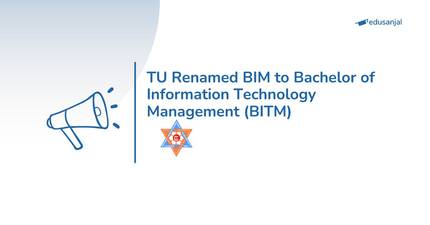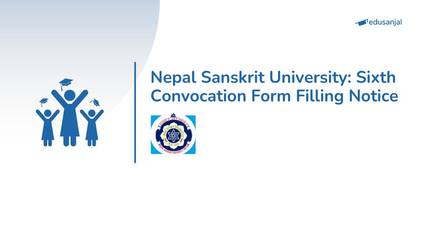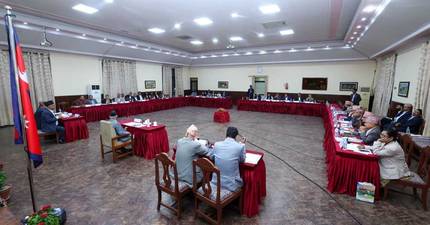With the initiation of Microbiology Struggle Committee, a group of Microbiology students today padlocked the examination department of Nepal Health Professional Council (NHPC).
Microbiology students of Tribhuvan University are in protest since last 4 years, when NHPC unexpectedly stopped to issue license to M.Sc Medical Microbiology graduates of Tribhuvan University at that time when many Microbiology graduates were waiting for the due process of getting permanent license. NHPC is going to conduct license examination for the first time in Kartik 27, Saturday from 8 am to 10 am.

Speaking with edusanjal, member secretary of the struggle committee, Jitendra Shrestha said, they wont allow NHPC to conduct the license examination of other levels, until their genuine demands are addressed. He also said, they have submitted their demands to NHPC two months ago with one month ultimatum, but this unilateral move of NHPC to call license examination of other level/discipline by keeping M.Sc Medical Microbiology graduates out, have compelled them to padlock the NHPC office.

What is this issue all about?
Tribhuvan University, the largest and oldest university is the leader of Microbiology education in Nepal. Through its more than 25 affiliated colleges, every year it enrolls around 4,000 students in its Bachelor level programs and around 300 students in Masters level program. In Masters level, students can specialize either in Medical Microbiology, or Food Microbiology, or Agriculture Microbiology or Public Health Microbiology. This current issue is mostly related with M.Sc graduates who have done specialization in Medical Microbiology.
As per the rule of NHPC, every person who are working in the laboratory requires license to work. Students who have studied laboratory subjects like BMLT can get license after completion of Bachelor level, but students who read B.Sc Microbiology do not get the license to work in the laboratory as the course not only specialize in laboratory science but encompass various discipline of Microbiology.
Both B.Sc Microbiology graduates and BMLT graduates are eligible to study M.Sc Medical Microbiology. After completion of M.Sc Medical Microbiology, those students from BMLT stream can easily work in the hospital laboratories using their license which they got after completion of BMLT, but for those students who have came from B.Sc Microbiology stream, the door for the practice in the diagnostic laboratories is closed for now.
But those same B.Sc Microbiology graduates who study M.Sc Clinical Microbiology at BPKIHS or TU IOM are again eligible to get the license and work in the laboratory. Another most interesting part of this NHPC licensing system is that, students who have studied in neighboring country (India), and whom Tribhuvan University issue the equivalent certificate are also eligible to get the license but the products of Tribhuvan University themselves are being victimized and barred to exercise their skills/expertise.
What's the reason behind this discrimination?
There is not a single reason to answer the rationale behind this. When the laboratory of major hospitals are being run with the leaderships of previous graduates of Tribhuvan University, the new provisions of barring new graduates of Tribhuvan University to work in the diagnostic laboratories seems biased and abuse of authority to fulfill some vested interests of particular group/person or institution. For some this is a tool to diminish the reputation of the Tribhuvan University and but for others, this is another way of fulfilling their pocket in illegal way. But if we see the supply and demand chain or prioritization of national agenda, this is the utter negligence and lack of coordination among government institution and the Nepal's oldest and largest University. NHPC which is younger than Tribhuvan University, is now questioning the quality of the graduates it has produced but the current head of this varsity such as Vice Chancellor, Dean and Department chiefs of Microbiology are turning deaf year to this current and pressing problem of students, as if they do not have any roles to protect the image of the university and secure the future of their graduates!
In another perspective, we can see a bunch of people who have the fear of losing theirjobs or not getting jobs in the laboratory, if the product the Tribhuvan University is formally allowed to work in the laboratory. Such groups are lobbying and trying to prevent the license for TU graduates.
Some M.Sc graduates from other university such as BPKIHS or TU IOM, most of whom studied B.Sc Microbiology and done masters from there, think that they are of superior breed and have superior laboratory skills than TU graduates so are unwilling to support their friend/colleagues for their fight for their rights, even some are also collaborating with the lobby group and working against their own fraternity.
Are all TU graduates perfect?
One of the main accusation TU graduates currently facing are, they do not have enough skills but knowledge to work in the laboratory. It is just an assumption, which has never been tested by using any available scientific tools. The graduates of Tribhuvan University are willing to take part in any type of assessments and prove their caliber/expertise.
Students wise variation will always be there. Among 30 students an institution enrolls and given same type of teaching environments, so gets distinction and some quits after being unable to pass the subject. So obviously, some of the students in the lower percentile of Tribhuvan University may not have necessary skills but this cant not be the excuse to prevent whole TU graduates to work in their designated area/profession.If you look the carrer growth of previous graduates, many of them are currently employed in world class laboratories in US, UK, Australia and some of them even getting grants from prestigious institution like CDC, NIH to fund their research ideas. When the developed countries are trying to attract these manpowers in their respective country, our officials are also compelling them to search green pasture abroad than to reside in their home country and serve the Nepalese people here.
Students of Microbiology, Government of Nepal, Ministry of Health, Ministry of Education, NHPC officials, officials of Tribhuvan University (including dean and department chief of Microbiology) and all the concerned officials must sit together and sort out this issue, before its too late. Discouraging and compelling the future scientist to leave their profession or country due to lack of managerial skills or lack of coordination among government institutions can not be justifiable and ethical.












